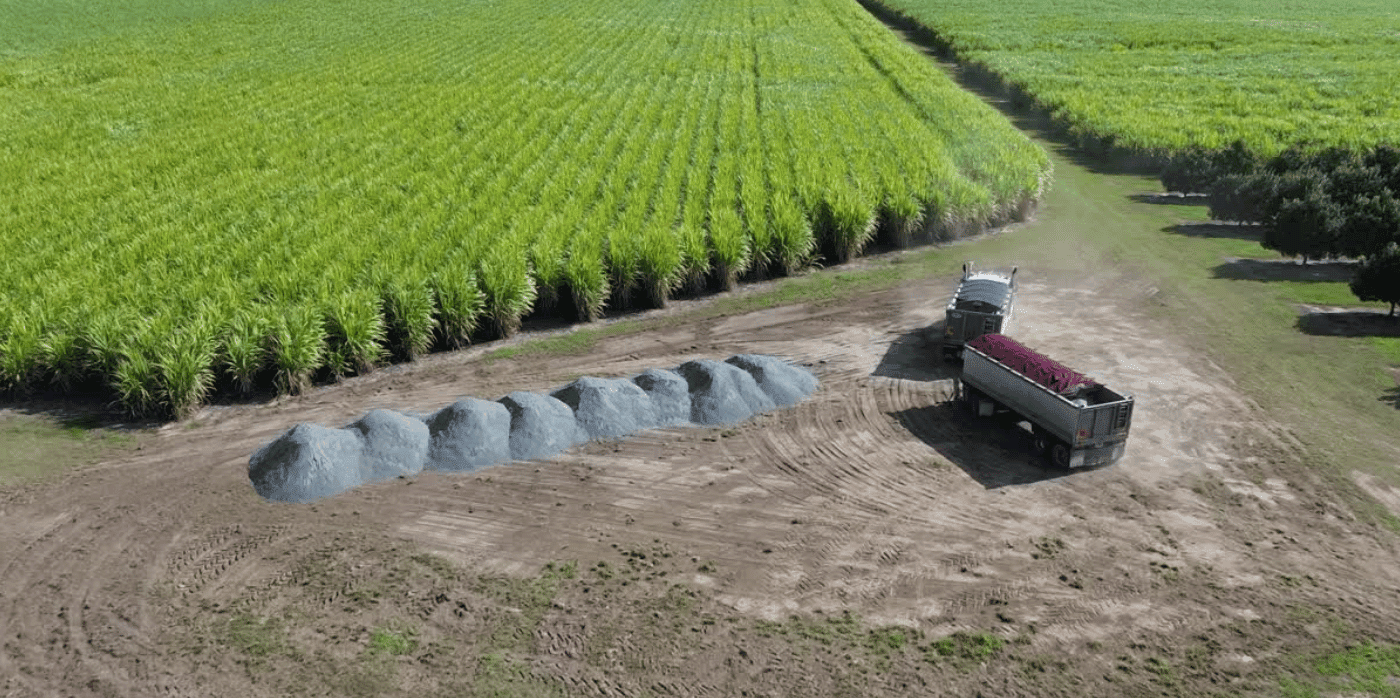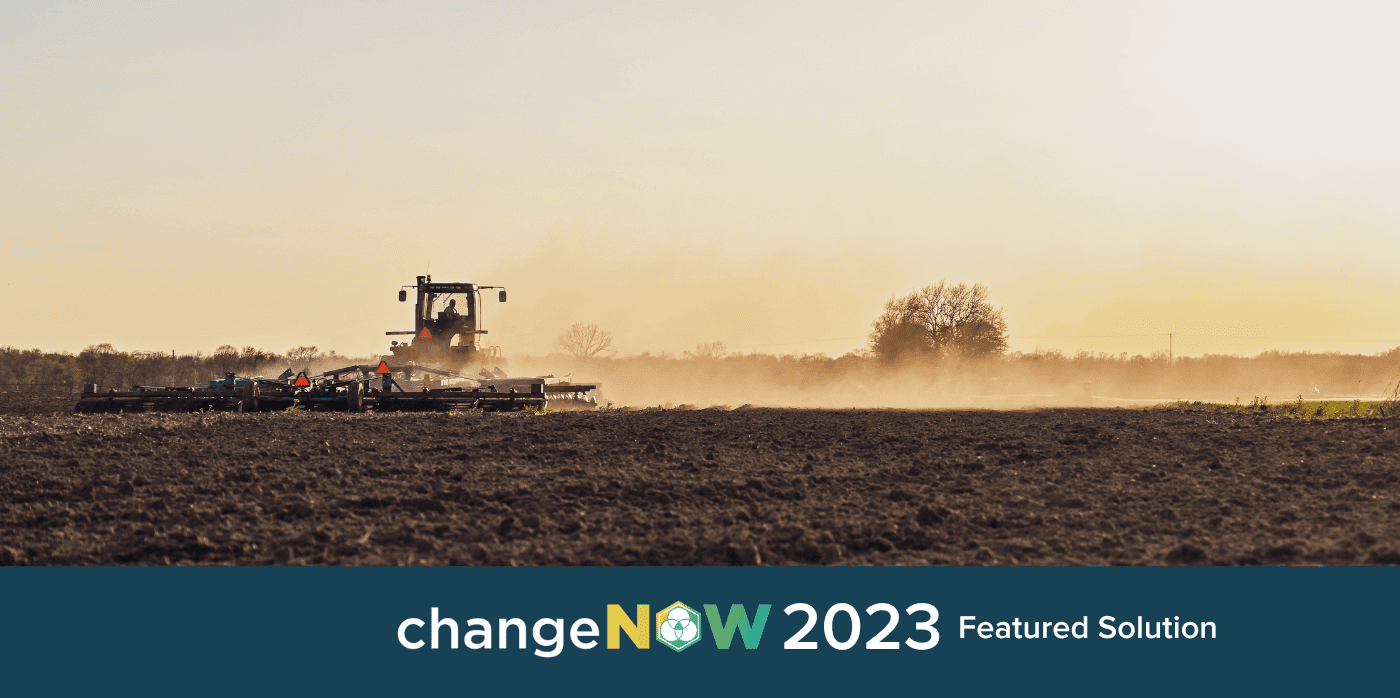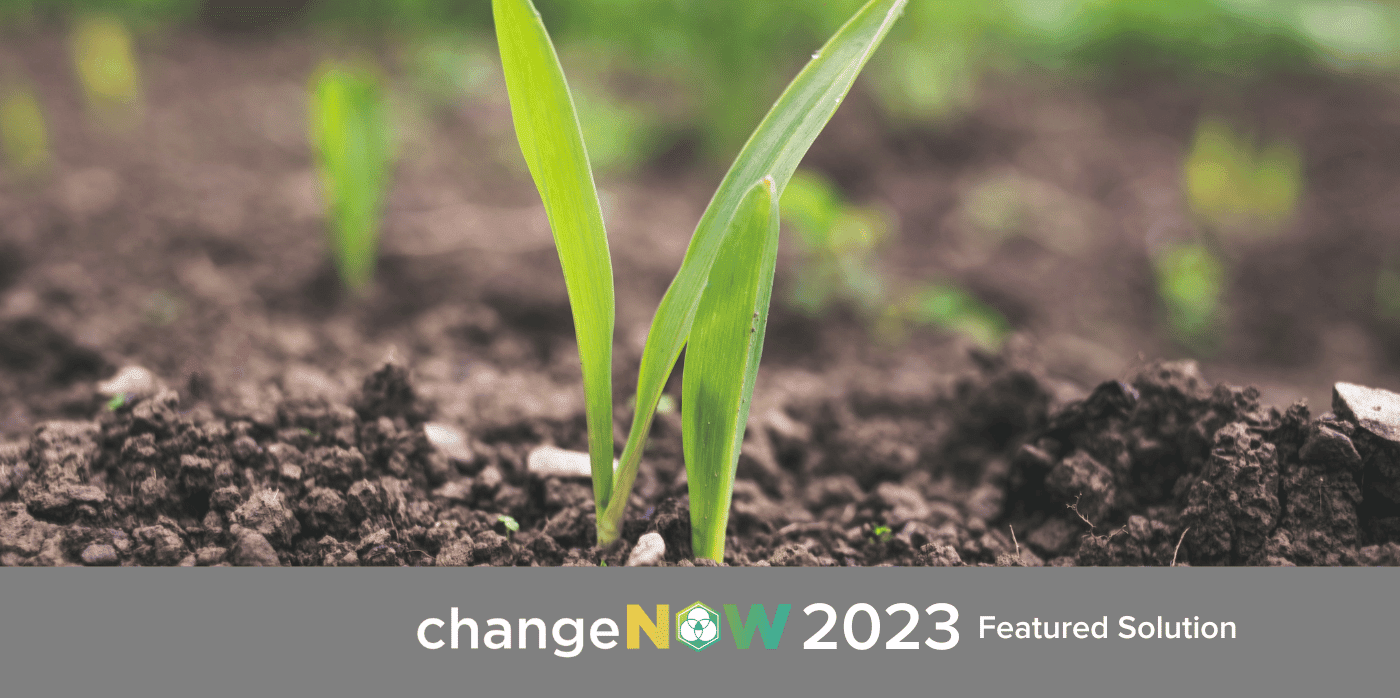Could basalt ‘carpets’ help build healthy soils?

Spotted: Farmers around the world are under pressure to maintain steady crop yields while also reducing their carbon footprints. Hoping to tackle the interrelated issues of climate change and food security, startup Carbonaught believes it has developed a solution – using basalt.
Carbonaught uses standard farming machinery to lay down large basalt ‘carpets’ in farming fields. Naturally occurring carbon dioxide and water in the air combine to form a weak acid that breaks down the basalt. This releases essential minerals and forms a nutrient-rich clay that builds new soil layers and aids in plant growth. At the same time, minerals added to the basalt by Carbonaught bind with the CO2 to form new rocks, locking the CO2 away.
The company’s platform enables farmers to generate and monitor their own weathering projects at scale. Carbonaught believes that by 2030, its platform will remove one billion tonnes of carbon dioxide from the atmosphere annually, while restoring degraded soils to enhance global food supply.
The company is still in the early stages, although it has secured several funded carbon removal pilot projects and received pre-seed funding from early-stage investment company Antler Australia. Carbonaught also placed 24th out of over 1,400 global teams that competed in Elon Musk’s 2022 XPrize Carbon Removal Challenge.
A growing number of innovations are aimed at replacing synthetic fertilisers – often derived from petroleum products – with organic alternatives. Springwise has recently spotted the use of seaweed as a bio-stimulant, as well as the creation of bespoke bio-inoculants.
Written By: Lisa Magloff





